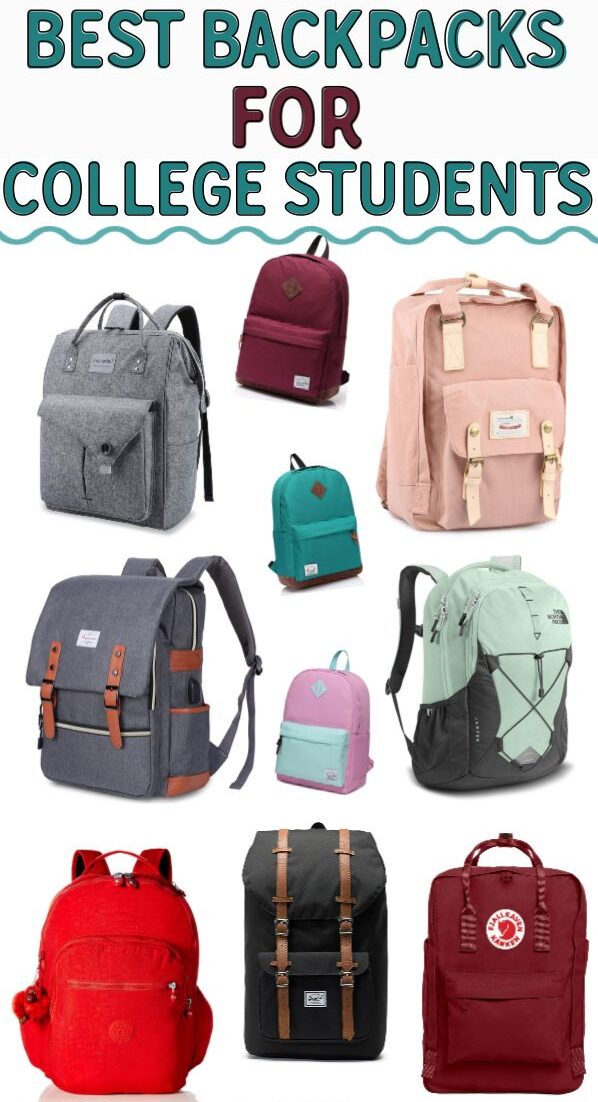Are you preparing for college and having doubts about the size of the backpack suitable for your needs? It is an important consideration for college students who need a backpack for their day-to-day classes and moving to and around campus. In this blog, we discuss How Big Should a College Backpack Be? and share relevant information to guide you on the right side of a college backpack for your needs. Going to college is fun but also a responsibility to ensure that you have a proper backpack. With that, I don’t mean a fashionable college should be practical, comfortable, and spacious enough to accommodate all the essentials for the day.

Factors to Consider
Before we delve into the ideal size of a college backpack, let’s explore some factors you should consider when making your decision:
1. Daily Load:
Consider the items you must carry regularly, such as textbooks, notebooks, laptops, and stationery. Consider your daily schedule and the number of classes to determine your required storage space.
2. Campus Layout:
If your college campus is vast and requires a lot of walking between classes, you might opt for a backpack that can comfortably hold all your necessities without weighing you down.
3. Extracurricular Activities:
If you participate in extracurricular activities like sports or clubs, you may need a backpack that can accommodate additional items such as gym clothes, sports equipment, or musical instruments.
4. Travel Needs:
Do you plan on traveling home frequently or going on weekend trips? A backpack with extra space and compartments for travel essentials can be beneficial.
Optimal Size for a College Backpack
The ideal size for a college backpack depends on your requirements and preferences. However, as a general guideline, a backpack with a 20 to 30-liter capacity is considered suitable for most college students. This site offers ample room to carry your daily essentials without being excessively bulky.
Storage Compartments and Organization
Apart from the overall size, the number and design of compartments in a college backpack are essential for efficient organization. Look for a backpack with dedicated pockets for laptops, tablets, water bottles, and smaller items like pens and keys. Multiple compartments help distribute weight evenly and make it easier to locate items quickly.
Comfort and Ergonomics
A backpack that feels comfortable on your shoulders is crucial, especially when wearing it for extended periods. Look for padded shoulder straps and a back panel that offers proper ventilation to prevent excessive sweating. Additionally, adjustable and sternum straps can help distribute weight evenly across your back and reduce strain.
Durability and Quality
College life can be demanding, so a durable backpack is essential. Look for backpacks made from high-quality materials such as nylon or polyester, as they are more resistant to wear and tear. Reinforced stitching and sturdy zippers are also indicators of a backpack’s durability.
Stylish and Practical Designs
While functionality is crucial, many college students also want their backpacks to reflect their style. Fortunately, many backpack designs are available, ranging from sleek and minimalist to vibrant and trendy. Find a design that matches your preferences while still meeting your practical needs.
Considerations for Specialized Needs
If you have specific requirements, such as carrying photography equipment, art supplies, or medical instruments, you may need a specialized backpack to cater to those needs. Explore options tailored to your requirements to ensure your essentials are protected and easily accessible.
Maintenance and Care
Following proper maintenance and care guidelines is essential to prolong your college backpack’s lifespan. Check the manufacturer’s instructions for cleaning and storage recommendations. Regularly clean your backpack, and avoid overstuffing it to prevent strain on the zippers and seams.
Budget-Friendly Options
Not all college students have an unlimited budget, so finding an affordable backpack that meets your needs is crucial. Research different brands and compare prices to find a backpack that balances quality and cost.
Conclusion
Choosing the right size for your college backpack ensures you have enough space to carry your daily essentials comfortably. When deciding, consider your daily load, campus layout, extracurricular activities, and travel needs. Remember to prioritize comfort, durability, and organization to enhance your college experience.
FAQs – How Big Should a College Backpack Be?
Ameer Hamza is a dedicated fashion writer with a keen eye for emerging trends and a passion for the artistry of style. His work delves into the latest in fashion, offering readers insights on everything from runway-inspired looks to everyday elegance. With a flair for storytelling and a deep understanding of the industry, Ameer Hamza brings a fresh perspective, making high fashion accessible and inspiring to all. Follow along as he explores the intersection of creativity, culture, and couture in the ever-evolving world of fashion.
